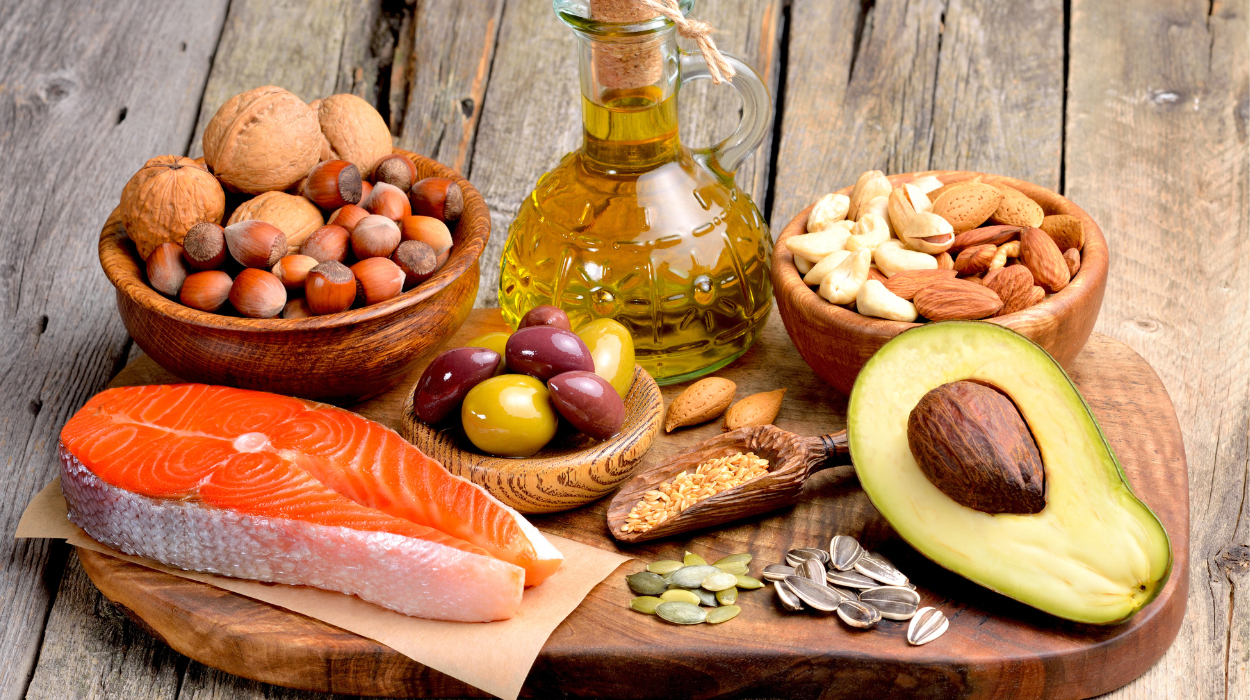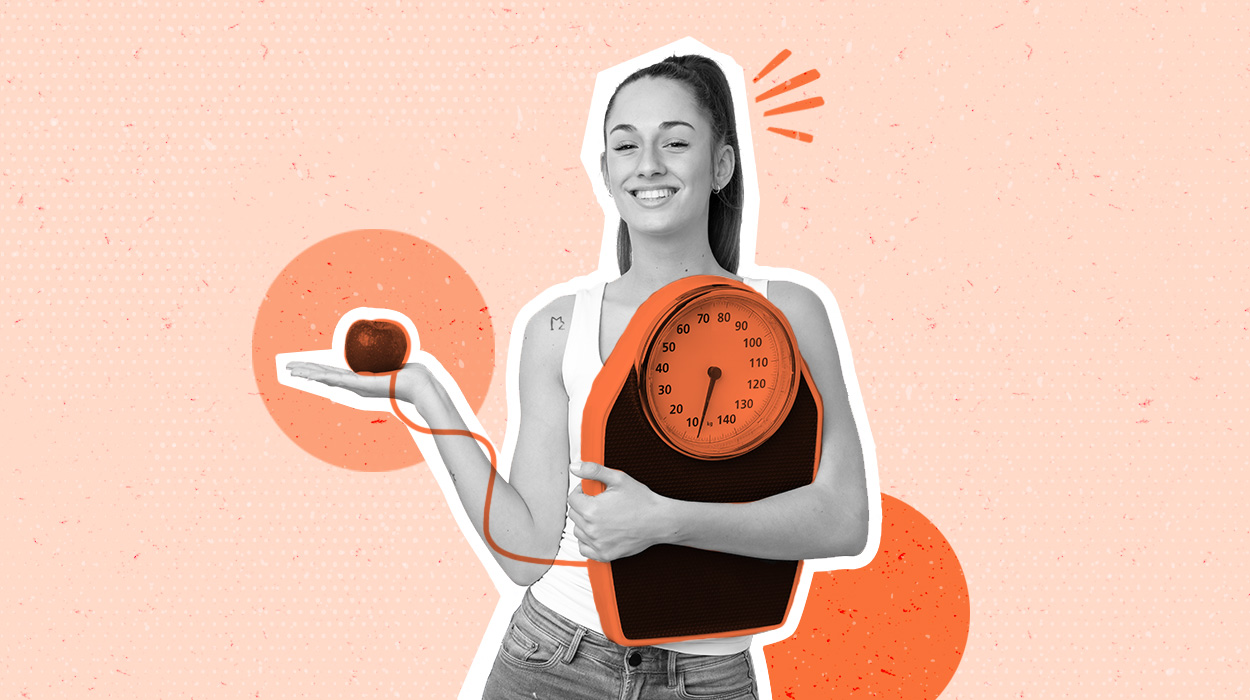Are you looking for a quick way to lose weight without compromising your health? If so, you’re in the right place, as you will find out how to lose weight really fast and how to lose weight safely.
In a world filled with endless diet fads and weight loss myths, it’s easy to feel overwhelmed and uncertain about where to start your journey to a healthier, more confident you. Finding ways to help you lose weight fast and safely is a common goal, but it’s essential to do so in a manner that promotes lasting results and a sustainable lifestyle to maintain a healthy weight.
That’s why we’ve sifted through the noise to bring you a carefully curated list of proven methods for healthy weight loss. No quick fixes or gimmicks here to help you lose weight, only science-backed, tried-and-true approaches that have stood the test of time.
From dietary adjustments and exercise routines to mindfulness techniques and lifestyle changes, we’ll cover a range of methods to find one that suits your preferences and needs. Your journey to a slimmer, healthier you starts right here.
How To Lose Weight Fast?
To lose weight fast, follow these 10 proven methods:
- Create a calorie deficit.
- Increase your protein intake.
- Reduce consumption of refined carbohydrates.
- Practice portion control and eat mindfully.
- Get regular exercise.
- Improve your sleep pattern.
- Manage stress levels.
- Beat harmful habits.
- Track your progress.
- Develop a support system.
10 Ways To Lose Weight Fast And Safely
Are you tired of weight loss promises that lead nowhere? In your quest for a slimmer, healthier you, science holds the key to effective and safe weight management.
Let’s dive into the 12 science-backed strategies to reduce your body mass index while lowering your food intake. Below are solutions about how to lose weight easily and how to lose weight super fast.
Create A Calorie Deficit
When it comes to losing weight, the fundamental principle is clear: you need to burn more calories than you consume. When you create a calorie deficit,[1] your body taps into fat reserves to compensate for the shortfall. This is what results in weight loss.
The first step on your journey should be calculating your calorie needs. Online calculators or fitness apps can help you determine how many calories are necessary to maintain weight. This baseline figure provides the foundation for crafting a personalized meal plan that aligns with your calorie deficit goal.
Besides exercise, reducing calories may also lead to a calorie deficit.[2] You can achieve this by adopting these strategies:
- Opt for lower-calorie foods.
- Consume smaller portions.
- Cut back on processed items and sugary foods.
How Many Calories Should I Eat To Lose Weight?
The number of calories you should eat in a calorie deficit depends on various factors, including your current weight, activity level, and weight loss goals. As a general guideline, a daily calorie intake of 500-1000 calories less than your maintenance level[3] is often recommended. This deficit level can lead to a gradual and sustainable weight loss of about 1 to 2 pounds per week, which is considered healthy and realistic.
However, it’s crucial to remember that individual calorie needs can vary significantly, and what works for one person may not work for another. It’s advisable to consult with a healthcare professional or a registered dietitian to determine the exact number of calories you should consume in a calorie deficit. A safe lower range for women[4] is 1200 calories; for men, it is 1500 calories to avoid metabolizing lean body mass.
Increase Your Protein Intake

Researchers have established a link between high-protein diets and effective weight loss.[5] This is largely due to the effect of protein in the body. Having a high-protein breakfast is part of a successful weight loss plan. Here’s how to lose weight fast:
First, protein helps you feel full and satisfied after meals, reducing the likelihood of unnecessary snacking or overeating. This not only supports your calorie deficit but also keeps hunger at bay.
Second, when you’re in a calorie deficit, your body may break down muscle for energy. But when you lose weight, you want to shed excess fat, not muscle. Consuming high amounts of protein, known as the “building block” of the body, helps preserve lean muscle mass. This is essential for maintaining a healthy metabolism, as muscle burns more calories at rest than fat.
To increase your protein intake, incorporate lean protein sources into your meals. Some viable sources of lean protein include:
- The white meat of chicken.
- The white meat of turkey.
- Lean cuts of beef.
- Fish.
- Tofu.
- Legumes like beans.
- Low-fat dairy products.
- Protein-rich snacks, such as Greek yogurt and nuts.
Protein shakes and bars can also be convenient options.
Reduce Consumption Of Refined Carbs
Reducing refined carbohydrates, like white bread, pasta, sugary beverages, and sugary foods, enables you to lose weight fast. This is because complex carbohydrates release energy slowly,[6] keeping you full and satisfied longer.
On the contrary, refined carbs are quickly digested, causing rapid spikes and crashes in blood sugar levels. These fluctuations trigger hunger and cravings, which make it difficult to control your calorie intake and possibly facilitate metabolic syndrome.
So, opt for nutrient-dense foods like complex carbohydrates, like whole grains, whole fruits, and vegetables, in place of processed foods to provide your body with a steady, sustained energy source and fiber. This helps maintain stable blood sugar levels, curbing those ravenous urges by promoting satiety and maintaining weight loss.
Practice Portion Control And Eat Mindfully
Practicing portion control and mindful eating puts you in control of what you eat. These successful weight loss techniques enable you to develop a healthy relationship with food.
Large portion sizes increase consumption,[7] and eating smaller portions helps reduce your overall calorie intake.
On the other hand, when you practice mindful eating you:
- Pay attention to your food.
- Savor each bite.
- Learn to listen to your body’s hunger and fullness cues.
Some studies suggest mindfulness-based interventions prevent mindless eating[8] and promote better dietary choices. However, additional research is necessary.
Here are some tips for practicing portion control and mindful eating to lose weight:
- Plan your meals and snacks ahead of time to make healthier choices and choices that include fiber-rich foods. Aim for 28-34 grams of fiber[9] per day. Sources of soluble fiber are good food choices as they help regulate blood sugar and fat levels.
- Use smaller plates and bowls, and avoid eating from serving containers, as this makes it easy to overeat.
- Measure out your food to ensure you’re getting your portions right.
- Eat slowly and chew thoroughly. Take the time to taste and enjoy your food to avoid overfeeding. Foods high in fiber take longer to chew and promote satiety while helping you to manage weight.
- Pay attention to your body’s signals, and stop eating when you are comfortably full.
Get Regular Exercise
Healthcare professionals recommend exercise as an integral part of all weight loss programs. Alongside a balanced diet, exercise helps burn calories,[10] helping you achieve the necessary calorie deficit for weight loss.
A 2016 group of researchers sought to determine the impact of exercise in preventing or delaying the onset of type 2 diabetes in populations at high risk of diabetes. The study[11] established that structured lifestyle interventions accompanied by at least 150 minutes per week of physical activity and dietary changes will result in 5%–7% body weight loss.
Additionally, regular physical activity builds and preserves lean muscle mass.[12] More muscle means a higher metabolism, which means you continue burning calories even at rest. This is particularly beneficial for older adults as they naturally lose muscle mass as they age.
Best Exercises For Losing Weight Fast
The best exercises to lose weight quickly include cardiovascular conditioning and strength training. Here are some effective options:
- High-Intensity Interval Training, HIIT: HIIT involves short bursts of intense exercise followed by brief rest periods. It’s excellent for burning calories and boosting metabolism.
- Aerobics: Activities like brisk walking, jogging, swimming, dancing, and even performing chores around the house boost your cardio fitness, helping you burn calories effectively.
- Bodyweight exercises: Activities like push-ups, burpees, and planks are effective for strength training and burning calories.
- Yoga: While not a high-intensity exercise, yoga can help with weight loss by reducing stress, promoting mindfulness, and increasing physical activity.
And remember to balance your routine. The Centers for Disease Control and Prevention[13] recommends at least 150 minutes of moderate-intensity weekly aerobic exercise. Combine this with muscle-strengthening activities targeting major muscle groups to maximize your weight loss potential. The best time to work out is in the morning.[14]
Improve Your Sleep Pattern
Not getting enough shut-eye instills weight gain. This is because inadequate sleep disrupts hunger-regulating hormones,[15] making you more likely to binge. The body also produces more stress hormone cortisol, which has been found to trigger weight gain.
To address your sleep debt, consider taking short naps, adjusting your bedtime, or allowing yourself to sleep in a bit longer. Avoid caffeine and electronics before bedtime, and practice relaxation techniques to reduce stress. Overall, maintain a consistent sleep schedule to enhance your sleep quality and duration.
Manage Stress Levels

High stress levels have been linked to hyperphagic eating,[16] unhealthy eating habits, emotional overeating, and weight gain. It triggers the release of cortisol, a hormone that encourages fat storage, particularly in the abdominal area.
To manage stress, incorporate stress-reduction techniques into your daily routine. This includes activities like meditation and yoga. Physical exercise, a balanced diet, and sufficient sleep help combat stress.
Also, prioritize self-care and relaxation to avoid emotional eating. Implement techniques like deep breathing and mindfulness to stay calm in challenging moments. If these fall short, consult a qualified mental health expert or therapist for specialized advice.
Beat Harmful Habits
Some habits can sabotage your weight loss efforts, such as:
- Mindless snacking: Mindless snacking, especially on unhealthy and calorie-dense foods or foods high in saturated fat, leads to excessive calorie intake. Replace this habit with mindful eating, emphasizing portion control and nutrient-dense choices.
- Excessive sugar consumption: Sugar-laden foods and beverages contribute to empty calories, which increases weight gain. Reducing sugar intake and choosing healthier alternatives can help significantly hasten your weight loss journey.
- Smoking, drug abuse, and excessive alcohol consumption: These habits disrupt your metabolism and appetite control.
Breaking free from these habits is vital for your well-being and weight loss goals.
Track Your Progress
Tracking your progress involves regularly monitoring your weight, food intake, and exercise routines to ensure you’re on the right track. It enables you to identify patterns, strengths, and areas for improvement.
Keep a weight loss journal, and use mobile apps or wearable fitness devices to track weight by monitoring your daily habits, calorie intake, and exercise. This helps you stay accountable and motivated.
Find A Support System
Did you know that having a support system can significantly accelerate your weight loss?[17]
Friends and family members who share your weight loss goals or are on a similar journey provide motivation, encouragement, and accountability. Because they understand your journey, you can inspire each other to stay on track.
Healthcare professionals and registered dietitians are an invaluable source of expert guidance. They can tailor a personalized plan to your unique needs, ensuring you follow a safe and effective weight-loss program.
How To Keep The Weight You Lose?
Here are some tips on how to lose a lot of weight fast and keep it that way:
- Maintain a healthy, balanced diet.
- Stay active.
- Make gradual changes to your diet and exercise routine.
- Avoid sleep deprivation.
- Manage stress.
- Make sustainable lifestyle changes like cutting back on alcohol or quitting smoking.
- Monitor your weight and make adjustments to your weight loss program as needed.
- Practice self-care by getting enough quality sleep and keeping stress low.
- Make healthy choices a habit.
- Seek social support.
Remember, losing weight and keeping it off is a journey. There will be setbacks along the way, but don’t let them discourage you.
Some Healthy Foods For Weight Loss
Healthy foods for weight loss are typically low in calories but high in nutrients. Here are some excellent options to include in a healthy diet:
- Lean proteins: Lean meats like the white meat of chicken, turkey, and fish are high in protein and low in fat. Plant-based sources like tofu, tempeh, and legumes are also ideal choices. Protein helps you feel full and supports muscle maintenance.
- Leafy greens: Non-starchy vegetables like spinach, kale, and Swiss chard are low in calories but packed with vitamins, minerals, and fiber — facilitators of weight loss.
- Legumes: Beans, lentils, and chickpeas are rich in fiber and protein, making them great choices for weight loss.
- Whole grains: Opt for whole grains like quinoa, brown rice, and oats over refined grains. They provide complex carbohydrates and fiber, which promote satiety.
- Fruits: Whole fruits like berries, apples, and citrus fruits are low in calories, high in fiber, and high in antioxidants and vitamins. This makes them effective in curbing appetite.
- Nuts and seeds: While calorie-dense, nuts and seeds in moderation provide healthy fats, fiber, and protein, which help you feel full and satisfied for longer.
- Low-fat dairy: Choose low-fat or Greek yogurt and skim milk for a calcium and protein boost.
- Green tea: Green tea contains catechins, compounds that boost metabolism and promote weight loss. Aim to drink 2-3 cups of green tea per day.
- Spices and herbs: Use cinnamon, cayenne pepper, and ginger to add flavor without extra calories. Certain compounds in these herbs and spices may boost metabolism and promote weight loss.
- Water: Stay well-hydrated to boost digestion, control appetite, and support overall health. Strive for six to eight glasses[18] of water per day.
Remember, controlling your portions is essential, even with healthy foods. Balancing these options with a calorie deficit and constant physical activity is key for effective weight loss.
Safety Precautions
When trying to lose weight, it’s important to prioritize safety to avoid compromising your health. Follow these precautions to achieve your goals healthily and sustainably:
- Consult a healthcare professional.
- Avoid extreme diets.
- Set realistic goals.
- Focus on nutrition.
- Stay hydrated.
- Avoid over-exercising.
- Be mindful of emotional health.
- Stay informed.
The Bottom Line
Losing weight fast can be challenging, but it is possible with the right approach. From creating a calorie deficit and boosting your protein intake to managing stress and improving your sleep, these 12 proven ways are your ticket to a healthier, happier you in 2023 and beyond.
However, note that we are all different, and what works for one person may not work for another. Sustainable lifestyle changes, a supportive network, and a focus on overall well-being will help you maintain your achievements for the long term.
Overall, consult a qualified doctor, dietitian, or therapist to find a weight loss plan that is sustainable for you and fits your lifestyle.
Frequently Asked Questions
The recommended calorie intake for weight loss[19] varies but ranges between 1,200 and 1,500 calories per day for women and 1,500 and 1,800 for men. This is around 500-1,000 calories less than your maintenance calories per day.
Quick weight loss is challenging and involves following a strict diet with reduced calorie intake, increased physical activity, and hydration. It’s best to consult a healthcare professional for a safe approach.
The quickest way to lose weight involves a combination of a calorie deficit through strict dieting and increased physical activity. However, talking to a healthcare provider for tailored advice to avoid undernutrition is essential.
Losing 20 pounds monthly is extremely ambitious and potentially unhealthy. It’s advised to set more realistic goals for sustainable weight loss and consult with a doctor for guidance of 1-2 lbs per week.
 Expert's opinion
Expert's opinion
